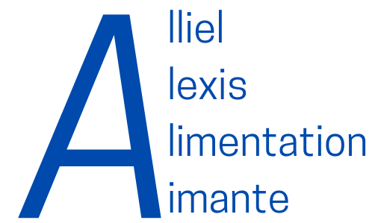Blue March: Colorectal Cancer Prevention
Blue March: Let’s Take Action Together
The month of March is a time for solidarity and action in the fight against colorectal cancer through the Blue March campaign. Every year, this awareness initiative highlights the importance of prevention, screening, and follow-up care to reduce the impact of this cancer, which remains one of the most common in France.
As a healthcare professional, it is essential to take an active role in this cause, especially by informing patients about proper dietary and lifestyle habits. This awareness month offers us an opportunity to discuss these topics openly and compassionately.
Colorectal Cancer: A Major Public Health Concern
Colorectal cancer affects approximately 43,000 people each year in France and remains the second leading cause of cancer-related deaths. However, it is one of the most predictable and preventable cancers, particularly through early screening and the adoption of healthy lifestyle habits.
Individuals over the age of 50 are strongly encouraged to undergo free screening (fecal occult blood test) every two years to detect early signs before symptoms appear.
Prevention Through Diet: A Key Role
One of the key aspects of colorectal cancer prevention lies in nutrition. Several studies have shown that healthy eating habits can significantly reduce the risk of developing this cancer. Here are some tips to protect your digestive health:
Prioritize Fiber
Dietary fiber is essential for good digestion. It is primarily found in fruits, vegetables, legumes, whole grains, and seeds. Fiber promotes regular bowel movements and helps reduce intestinal inflammation—both key factors in lowering colorectal cancer risk.
Limit Red and Processed Meat
Excessive consumption of red and processed meats (cold cuts, sausages, etc.) has been linked to an increased risk of colorectal cancer. It is advisable to consume them in moderation and favor lean protein sources such as fish, poultry, or plant-based alternatives.
Increase Antioxidant Intake
Antioxidants, found in many fruits and vegetables, help protect cells from oxidative damage, which can contribute to cancer development. Tomatoes, broccoli, spinach, and berries are particularly rich in beneficial antioxidants.
Reduce Alcohol and Sugar Consumption
Alcohol and excessive sugar intake have also been identified as risk factors for colorectal cancer. Moderating these can help protect colon health.
Physical Activity: An Essential Ally in Prevention
In addition to a balanced diet, physical activity plays a crucial role in reducing colorectal cancer risk. Scientific studies have shown that regular exercise significantly lowers the likelihood of developing this cancer. Physical activity helps by:
Stimulating intestinal transit: It accelerates the passage of food through the intestines, reducing exposure to potentially carcinogenic substances.
Reducing inflammation: Chronic intestinal inflammation is a major risk factor for colorectal cancer, and exercise helps mitigate this.
Regulating hormone levels: Regular exercise helps balance hormones such as insulin and estrogen, which, when in excess, can promote colorectal cancer development.
Maintaining a healthy weight: Obesity is a well-documented risk factor for many cancers, including colorectal cancer. Staying at a healthy weight through exercise further reduces the risk.
Current recommendations suggest at least 30 minutes of moderate activity (such as brisk walking, swimming, or cycling) five days per week. This level of activity can be sufficient to improve intestinal health and lower colorectal cancer risk. For those who need it, adapted physical activities can be implemented, taking into account individual capacities and personal preferences.
The Role of Screening: Detect Early to Treat Better
Screening is a fundamental pillar in the fight against colorectal cancer. Screening tests can detect early signs of cancer before symptoms appear. When detected at an early stage, treatments are much more effective, and the chances of recovery increase significantly.
A fecal occult blood test is recommended every two years for individuals aged 50 to 74.
A colonoscopy may be advised in certain cases, particularly in the presence of family risk factors or if the screening test reveals abnormalities.
Let’s Take Action Together for Prevention and Screening!
Blue March is an excellent opportunity to remind everyone of the importance of prevention and adopting healthy habits to reduce risks. More than that, it is an invitation to participate in the organized screening campaign and encourage others to do the same.
As a healthcare professional, it is crucial to discuss colorectal cancer prevention with your patients, emphasizing the importance of screening, a healthy diet, and regular physical activity.
Remember, prevention involves simple yet effective steps: a balanced diet, an active lifestyle, and regular medical check-ups.
https://www.marsbleuconnecte.fr/
📚 Preventive Health: Discover our sports nutrition approach and preventive vegetarian eating. For diabetes, see our complete guide.
Vivre et manger sont les deux faces de la même pièce
Lighten your relationship with food and free yourself from what hinders you!
+33 6 22 41 55 21
© 2024. All rights reserved.
RPPS : 10007258733
N° ADELI : 75 95 0878 1
